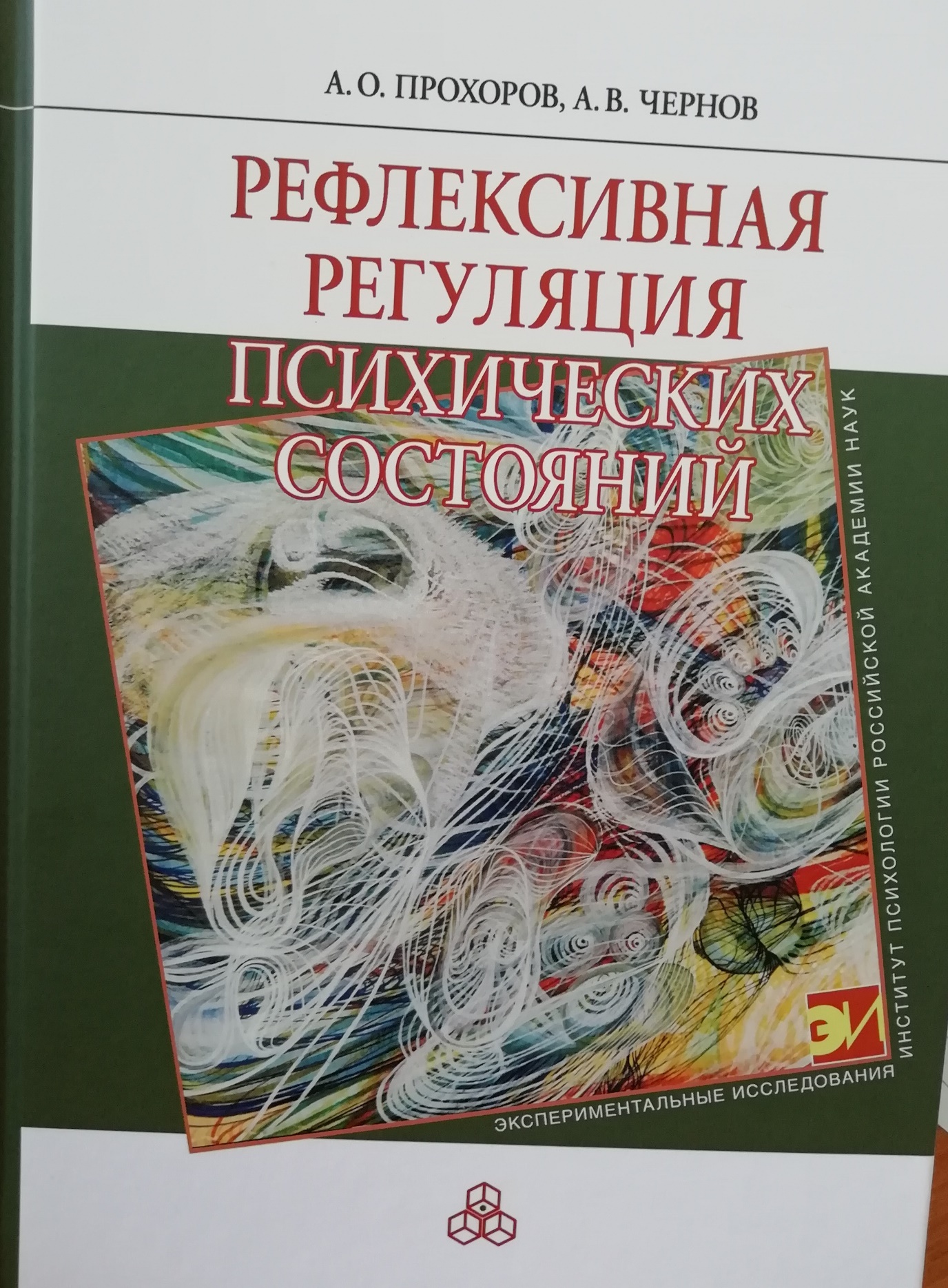
A monograph written by psychologists at Kazan University based on research supported by the Russian Federal Property Fund is published in the Experimental Research series of the Russian Academy of Sciences.
The new book “Reflexive regulation of mental states”, written by a doctor of psychological sciences, professor, head of the department of general psychology of IPO KFU A. Prokhorov and associate professor of the department of general psychology IPO KFU A. Chernov, is intended for psychologists and all those who are interested in psychology
In the monograph, the authors presented the results of a study of the reflexive regulation of mental states: conceptual ideas about the mechanisms of regulation, phenomenological features, the influence of cognitive processes and personality traits on reflexive regulation.
– In our opinion, reflection is a mediating link between mental states and the regulatory actions of the subject. And at the same time, the relationship of reflection and mental states is not well understood: how does reflection affect mental states in everyday and difficult life situations, how does human activity depend on the relationship of reflection and mental state, ”explained the book’s co-author A. Prokhorov.
– During the research, we analyzed situational and activity factors (everyday and stressful), the influence of specialties and forms of educational activity, musical compositions of various directions, pregnancy. But we paid special attention to educational activities, because the success of students learning materials depends on self-regulation of behavior, management of their own activities and conditions, and on the inclusion of reflection in the educational process. Therefore, as the main sample of subjects, we invited students of the “humanities” and “techies,” A. Chernov added.
The book consists of six chapters.
The first chapter, “Reflection and Mental State”, presents a theoretical analysis of the problem of reflection in Russian and foreign psychology, examines the place of reflection in the structure of consciousness and the reflective mechanisms of regulation of activity. The author’s model of reflexive regulation of mental states is presented.
The authors are sure that reflection plays a key role in influencing the components of experienced states.
– This is due to the fact that the ability to be aware of one’s own and others’ experiences, as well as the features of educational activity, is an important condition for adjusting the current and achieving an optimal mental state.
The more adequately and fully a person is aware of his mental state, the wider is the arsenal of methods and techniques of self-regulation that he can apply to achieve an optimal mental state.
In the concept of reflexive regulation of mental states developed by KFU scientists, reflection is “included” as the central, main link in the subject’s regulatory process and the self-regulating beginning of his regulatory actions.
–Reflection allows one to predict, “lose” possible options and results of state regulation in certain circumstances and situations of life, to reconstruct the existing methods of action, analyze the structure of actions that do not lead to success, work out a final decision and proceed with executive actions.
The second chapter, “Phenomenological Features of Reflexive Regulation of Mental States,” discusses the results of empirical studies of the effect of reflection on mental states, differentiated on various grounds: sign, duration, content, modality, etc.
The role of reflection in the regulation of states in everyday and intense situations of activity, as well as the characteristics of the relationship of reflection with individual states: vigor, fatigue, sadness, joy, excitement, interest, etc., are shown by the example of educational activity. The reverse effect of mental states on reflection is considered.
To study the effect of reflection on the intensity of mental states, two samples were formed. One sample consisted of third-year students of technical specialties in the amount of 73 people (31 young men and 42 girls), and the other – second-year students of humanitarian specialties in the amount of 75 people (18 young men and 57 girls) aged 18-21 years. Research was carried out at specialty seminars.
Concluding the work, scientists noted that the results of studies, which, incidentally, were carried out within the framework of the projects of the Russian Foundation for Basic Research, only indicate areas and directions for further study of the contribution of reflective processes to regulation.
The results of research in this direction of human knowledge are fundamental for understanding the role of consciousness in the regulation of mental activity and for the purpose of practical application in optimizing human conditions.
The new book “Reflective regulation of mental states” will be interesting to psychologists and is intended for psychologists and all those who are interested in psychology.